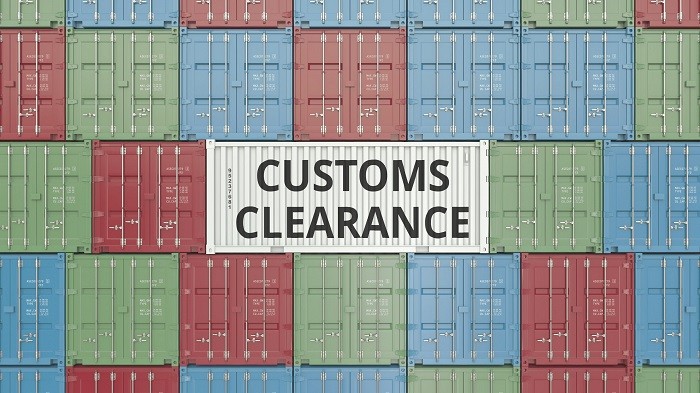
In effort to improve the provisions on customs registration as stipulated under the Regulation of The Minister of Finance No. 179/PMK.04/2016, on December 31, 2019, the Minister of Finance issued Regulation of The Minister of Finance No. 219/PMK.04/2019 on Simplification of Customs Registration (“MoF Regulation 219/2019”), which came into force on January 30, 2020.
This regulation requires businesses to carry out customs registration in order to obtain the type of customs access based on their business activities, namely:
- Importers;
- Exporters;
- Customs Clearance Service Companies (Pengusaha Pengurusan Jasa Kepabeanan - PPJK);
- Transportation (Pengangkut);
- Businesses Operating within Free Trade Zones (Pengusaha dalam Kawasan Perdagangan Bebas - FTZ);
- Courier Service Companies (Perusahaan Jasa Titipan - PJT);
- Temporary Storage Areas (Tempat Penimbunan Sementara - TPS);
- Bonded Storage Providers and/or Businesses (Tempat Penimbunan Berikat - TPB);
- Companies that are receivers of Export-Oriented Import Facilities (Kemudahan Impor Tujuan Ekspor - KITE).
Businesses can apply for more than 1 (one) type of customs access in accordance with the purpose of using customs access in their business activities. On the other hand, the obligation of customs registration is excluded for parties related to the following matters:
- Parties who fulfill customs import obligations for these, among others, types of goods:
goods of representatives of foreign countries and their officials who serve in Indonesia, goods for promotional purposes, sample goods that are not traded, and exported goods that are re-imported for repairs, exhibitions, or rejected by buyers located outside the customs area of which the amount may not exceed the amount exported as defined by the export customs notification documents. - Parties who fulfill customs export obligations for these, among others, types of goods:
goods of representatives of foreign countries and their officials who serve in Indonesia, exported goods carried out by individual that are not for trade, exported goods for repair or exhibition purposes that will be re-imported, goods for promotional purposes, sample goods that are not traded, and imported goods that will be re-exported. - Parties in transportation (pengangkut), specifically:
foreign transportation that does not have a scheduled transportation permit, domestic transportation that leaves the customs area and does not have a scheduled transportation permit, land transportation, parties that import or export their own transportation, and military transportation.
Previously, customs registration procedure to obtain customs access is conducted by way of the Indonesia National Single Window Portal system and the Online Single Submission (OSS) system. With the issuance of this regulation, the customs registration procedure to obtain customs access has become simpler as the enterprises now only have to go through OSS.
The following customs registration procedure is mandatory for all aforementioned business activities:
- Firstly, any new businesses must register a business license via OSS to obtain a Business Identification Number (NIB).
- Secondly, the business must submit an application of customs registration to the Indonesian Directorate General of Custom and Excise (DJBC) via OSS and complete the following data: NIB, Taxpayer Registration Number (NPWP), Identity and Address of Business Entity, Identity and Address of Person in Charge, Indonesia Standard Industrial Classification (KBLI), Legality of Business Entity, Amount of Capital, Number of Indonesian and/or Foreign Employee.
*The corporations that only operate as importers and/or exporters that have completed their requirements up to the second stage and have received their NIB are eligible for customs access. However, the company that operate as more than or other than importers and/or exporters must complete the stages below:
- Thirdly, the business must submit the fulfillment of Customs Registration Commitment to the DJBC through OSS. In the event that the OSS is not yet in operation, then the commitment fulfillment shall be submitted via the DJBC system. In the event that the DJBC system experiences an operational disruption, then the commitment fulfillment shall be submitted through written submission.
- Fourth, the DJBC will issue the Operational or Commercial License as an approval of the commitment fulfillment via OSS. The Operational or Commercial License is proof that the business has obtained customs access.
In addition to the data on the aforementioned point No. 2, for certain firms must provide specific data to carry out customs registration, as listed below:
- Importers:
Import Identification Number (API) - Exporters:
Company Registration Certificate (TDP) - Customs Clearance Service Companies (Pengusaha Pengurusan Jasa Kepabeanan - PPJK):
The corresponding certificate(s) from the Indonesian Financial Education and Training Agency (BPPK) of the custom expert(s) employed by the company. - Transportation (Pengangkut):
Relevant business activity permits for sea or air transportation - Businesses Operating within Free Trade Zones (Pengusaha dalam Kawasan Perdagangan Bebas - FTZ): Business permit issued by the relevant Indonesian Free Zone Authorities
- Courier Service Companies (Perusahaan Jasa Titipan - PJT):
Official approval for customs activities issued by DJBC - Temporary Storage Areas (Tempat Penimbunan Sementara - TPS):
Official approval as Temporary Storage Areas issued by DJBC - Bonded Storage Providers and/or Businesses (Tempat Penimbunan Berikat - TPB):
Business permits approval issued by DJBC - Companies that are receivers of Export-Oriented Import Facilities (Kemudahan Impor Tujuan Ekspor - KITE):
Official approval as KITE facilities recipients issued by DJBC
It should be noted that businesses with the following provisions are deemed to have completed the customs registration process:
- Importers and/or Exporters that have obtained NIB which are valid as TDP, API, and Customs Access.
- PJT, TPS, TPB, and KITE that have fulfilled the specific requirements as mentioned above.
To sum up, this regulation aims to simplify the procedure behind customs registration in the framework of accelerating customs and excise licensing in order to improve the ease of doing business in Indonesia.
Interested to know more?
Please contact:
Ms. Cassandra Ismail : cassandra(at)ekonid.id
Ms. Indah Lestari : indah(at)ekonid.id
Mr. Kefin Fariz : kefin.fariz(at)ekonid.id
Source: EKONID website